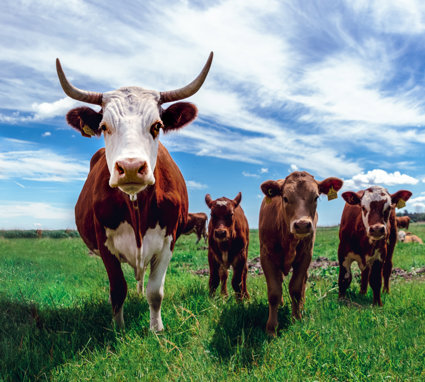
Biofuels: exploiting farmland and the natural environment
How does the production of biofuels impact upon the environment?
Key questions
What are biofuels?
How does the production of biofuels impact upon the environment?
Across the world, farmers produce a variety of staple crops such as rice, wheat, maize and potatoes. These staples form the bulk of the food that we eat. Demand for these crops continues to increase but world prices fluctuate as farmers have good years and bad years. Some farmers have turned to new crops in order to seek out new markets or better prices for the crops that they grow.
In recent years, there has been a strong trend towards growing crops for industrial use rather than for feeding people. A good example of this has been the growing of crops for the production of biofuels. Biofuels are liquid fuels derived from plant materials. Take, for example, biodiesel which can be made from vegetable oils such as palm oil, soy or rapeseed oil.
There have been two consequences of this change in land use. Firstly, worldwide, less land is being used to produce food at a time when the world population continues to grow. Secondly, as demand and prices have risen for crops such as palm oil, new land has been cleared to start plantations. The land that is being cleared in countries such as Indonesia and Malaysia is often rainforest or other precious environments where plant and animal diversity is high and indigenous people live traditional lives in harmony with the delicate ecosystems. The demand for palm oil has been linked to the impending extinction of the orang-utan. A recent (2005) report, supported by Friends of the Earth, states that without intervention the palm oiltrade will probably cause the extiction of the orang-utan within 12 years.
Countries like the UK cause the demand for palm oil and other biofuels. As a country and as individuals, we have a responsibility to ensure that the products we use are produced sustainably wherever possible. In 2001 the Roundtable on Sustainable Palm Oil (RSPO) was set up to bring this deforestation under control and to establish clear ethical and ecological standards for producing palm oil, however forest destruction has continued.
Governments in less economically developed countries face a dilemma when trying to choose between protecting the environment and boosting the economy, as strengthened economies can act as a catalyst for rural development and political stability. Profits from biofuel plantations can also be used for social initiatives to alleviate poverty and the palm oil industry provides jobs for people who have few other opportunities. Large, western multinationals with a vested interest in producing more of these industrial products are often involved in investing and supporting these large scale developments.
Starter
Download the photo presentation of the Soybean bus.
Use this article to complete the Five W's exercise: What is the soybean bus? Where can you find it? When was it created? Why was it created? Who uses the bus?
To make this a little harder, you could also try the Five Why's. Start by answering this question: Why is this bus decorated with soy beans? Follow this with three to five why questions with each subsequent questions based on the previous answer.
Main Activity
Download and print out the biofuel statements document, which contains 26 statements about biofuels. Cut up this list into the 26 individual statements and divide them into positive statements, negative statements and neutral statements. Alternatively select five statements from this list and demonstrate how these statements can be linked together.
The aim of this exercise is to build up a picture of a situation in which the world is trying to shift from its traditional reliance on unsustainable, polluting fossil fuels to sustainable, environmentally-friendly biofuels. The key is to understand that this well-meaning shift in resources has unpleasant side effects:
-
Farmland which used to grow food crops is now being used to grow industrial crops
-
The price of crops which could be used as food or fuel is rising rapidly
-
New land (often rainforest or other precious habitats) is being cleared to grow biofuel crops
Watch these two videos:
Work on an email, a poster, a slogan or an advert to try and persuade organisations who make products using palm oil (these include supermarkets such as sainsburys and Tesco) to care about where the palm oil comes from and how it is grown.
Plenary
To recap on the principal themes of this lesson, in pairs play word association or word tennis. Your teacher will be stopping the game random intervals so be prepared to explain how your word links to the previous word.
File nameFiles
File type
Size
Download